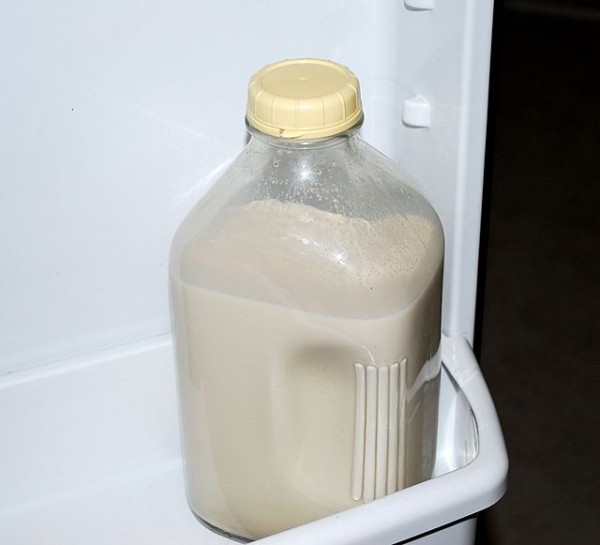
Non-cow's milk - such as rice, almond, soy and goat's milk - have become increasingly popular due to their perceived health benefits or because of milk allergies and lactose intolerance. However, a new study suggested that children who drink such beverages have lower blood levels of vitamin D, compared with those who drink cow's milk.
The study, published Monday in the Canadian Medical Association Journal, found that kids who drank only non-dairy milk were more than twice as likely as children who drank only cow's milk to be vitamin D-deficient.
Vitamin D, known as the sunshine vitamin, plays a critical role in bone development. Low levels of vitamin D can cause bone weakness and, in severe cases, rickets -- a condition that causes bones to become soft and can potentially lead to skeletal deformities.
"Children drinking only non-cow's milk were more than twice as likely to be vitamin D deficient as children drinking only cow's milk," said Dr. Jonathon Maguire, a pediatrician and researcher with St. Michael's Hospital.
"Among children who drank non-cow's milk, every additional cup of non-cow's milk was associated with a five per cent drop in vitamin D levels per month."
Vitamin D is an essential nutrient produced through sun exposure or found in fortified cow's milk, fish and other foods. It plays an important role in the development and strengthening of bones. In children, low levels of vitamin D can cause bone weakness and, in severe cases, rickets - a condition causing the bones to become soft and weak and potentially leading to bone deformities.
In North America, every 100 milliliters of cow's milk is required to be fortified with 40 International Units of vitamin D. Adding vitamin D to non-cow's milk, however, is voluntary.
"It is difficult for consumers to tell how much vitamin D is in non-cow's milk," said Dr. Maguire. "Caregivers need to be aware of the amount of vitamin D, calcium and other nutrients in alternative milk beverages so they can make informed choices for their children."
In Canada, cow's milk and margarine are required by law to be fortified with vitamin D, which is also found naturally in fish, liver and egg yolks. Most of the body's vitamin D stores arise from exposure to sunlight, which converts cholesterol in the skin to vitamin D3. But from late fall through to spring, there is not enough sunlight in Canada for the body to make vitamin D, so dietary sources are critical to maintain bones and to optimize health.
Based on a recommendation by the Institute of Medicine, the level of vitamin D in a child's blood should measure at least 50 nanomoles per liter to ensure good bone development.
"When we looked at what different kinds of milk and milk beverages children were drinking, we found a gradient in their vitamin D levels," said principal investigator Dr. Jonathon Maguire, a pediatrician and researcher at St. Michael's Hospital in Toronto.
"What we found was that in children who were drinking only non-cow's milk beverages, they had a lower level. About five per cent who were only drinking cow's milk and about 11 per cent of children who were drinking only non-dairy milk were below that level "he said.
According to the National Institutes of Health, vitamin D maintains strong bones by helping the body absorb calcium from food and supplements. Individuals who are vitamin D deficient can develop soft, thin, brittle bones - known as rickets in children and osteomalacia in adults.
Because very few foods naturally contain vitamin D, fortified foods provide most of the vitamin D in the American diet.

